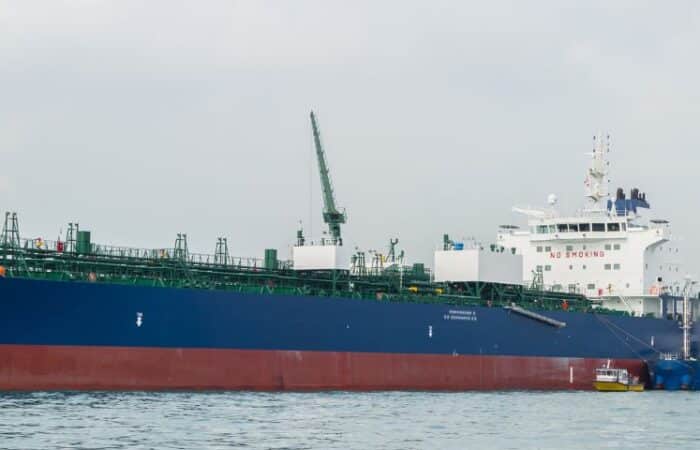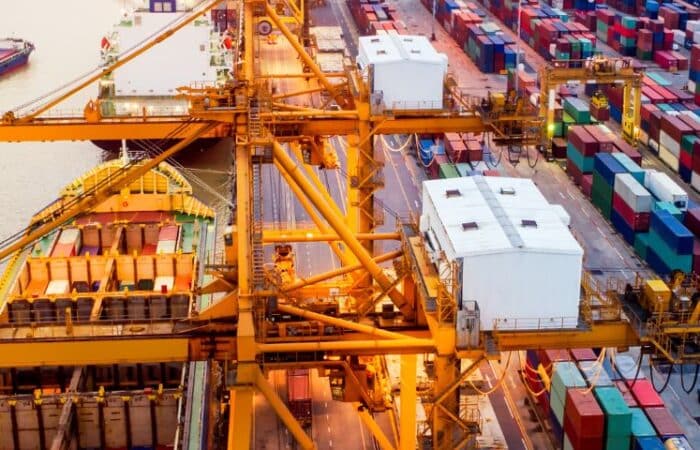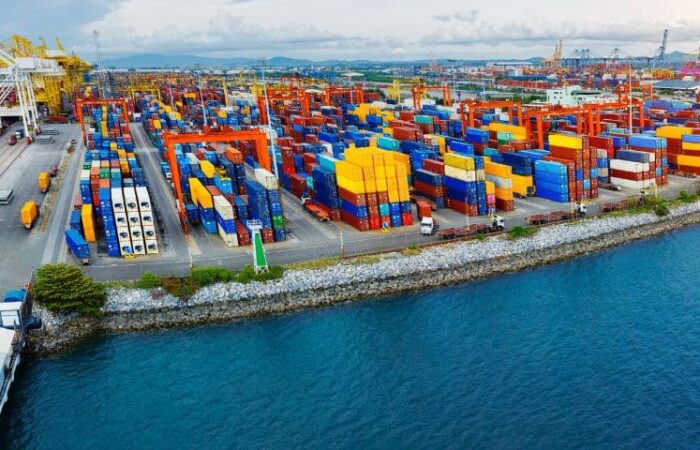Predictive Intelligence
What is Predictive Intelligence in the Maritime Industry?
Predictive intelligence is one of the most important technological advances in the maritime industry. It uses artificial intelligence (AI) methods and advanced analytics to track billions of data points that are helpful in identifying maritime trends and forecasting future events or outcomes. Not only does it help optimize the shipping process, but it’s also useful for sanctions compliance, enhanced due diligence, and environmental protection.

The Significance of Predictive Intelligence
The shipping industry is complex and affected by many changing factors, making it difficult to streamline and optimize. Long routes with bottlenecks, unpredictable weather, and limited options for unloading cargo all require intelligent planning to avoid delays and losses. To handle vast amounts of information effectively, it’s essential to use data analysis powered by AI.
Compared to land transportation, ships have less flexibility when it comes to planning routes and adapting to new situations in real time. They must be ready for various challenges. With Maritime AI™, which utilizes predictive analytics, crews can predict and test different situations to reduce the impact of delays, accidents, or blocked routes. Although blocked routes don’t happen often, they disrupt a large part of global sea trade for days when they occur.
Predictive analytics can also help ports, which have been facing problems with not having enough workers and finding efficient ways to unload cargo. It relieves port congestion, which is one of the leading causes of demurrage and detention charges.
Complete Maritime Domain Awareness
The impact of predictive intelligence can be felt in areas such as commercial vessels, ocean freight visibility, and even assisting governments with national security. It can assist organizations with comprehensive due diligence and sanctions screening, for example, predicting vessels that are likely to be carrying sanctioned oil, etc. It also provides the necessary tools to meet the requirements for maritime domain awareness (MDA), which, according to the Law Insider, is defined as “all areas and things of, on, under, relating to, adjacent to, or bordering on a sea, ocean, or other navigable waterway.”
MDA is essential for effective decision-making, resource allocation, and risk management in the maritime sector. It encompasses various aspects, including vessel tracking, port operations, cargo movements, weather conditions, and regulatory compliance.
Notable Use Cases for Predictive Intelligence
Maritime predictive intelligence has numerous use cases that can significantly benefit the shipping industry. These applications can help shipping companies optimize operations, enhance safety and security, reduce costs, and minimize their environmental footprint. Some of the most notable use cases of maritime predictive intelligence include:
- Supply chain efficiency: improve container tracking capabilities to drastically upgrade efficiency. With ocean freight visibility, instantly identify shipments that may be delayed, discover the reason for those delays, and track shipments as they reach milestones along the voyage
- Due diligence: by monitoring and analyzing data on vessel movements, port activities, and environmental conditions, predictive intelligence can help maritime stakeholders implement a strategic due diligence plan. With this information, shipping companies are able to take proactive measures to lower risks and protect their assets.
- Sanctions compliance: ensuring compliance with national and international sanctions is made easier by identifying potentially high-risk vessels, cargo, or trade partners. Effective predictive intelligence technology can provide real-time alerts to relevant stakeholders by accessing databases, such as LexisNexis, and real-time behavioral data to identify risk exposure. Once a company has this information, they can adjust to ensure they’re compliant.
Predictive Intelligence Reduces Operating Expenses
Transporting containers across oceans and seas is a complex process with numerous moving parts. Delays, even minor ones, can result in substantial fees, or unforeseen expenses. A study revealed that approximately 70% of ships arrived at ports later than expected, leading to losses ranging between $5 and $10 billion. Access to advanced maritime analytics in the shipping industry can help organizations receive more accurate estimated times of arrival (ETAs) based on big data in shipping, ensuring that all relevant stakeholders in the supply chain are informed and aligned.
Maritime AI™, Windward’s industry-leading predictive intelligence platform, analyzes billions of data points, including data from:
- Over 100 carriers
- More than 1,400 ports and terminals
- 5,500 container vessels
- Comprehensive sailing schedules
- Real-time weather updates and advanced forecasts
- Live location tracking
- Automatic Identification System (AIS) data
The AI-powered solutions examine numerous behavioral analysis models, enabling companies to optimize their supply chains and make data-driven decisions rapidly. They can filter, search, and analyze maritime data to connect all aspects, pinpoint potential risks, and identify suspicious business partners. By consistently applying the behavior analysis model, the Maritime AI™ platform delivers dynamic predictive intelligence based on factors such as vessel identification, cargo visibility, actual location, and navigation mode.
Predictive intelligence, powered by AI, enables shipping companies and organizations to adopt a proactive approach rather than a reactive one. Instead of relying on manual efforts to coordinate with carriers, monitor weather patterns, communicate with ports, and manage the hundreds of other logistical components that make up the shipping process, they can concentrate on making data-driven decisions. This streamlines processes, helps maintain accurate ETAs, and ensures the supply chain experience remains efficient, functioning, and on schedule.



















